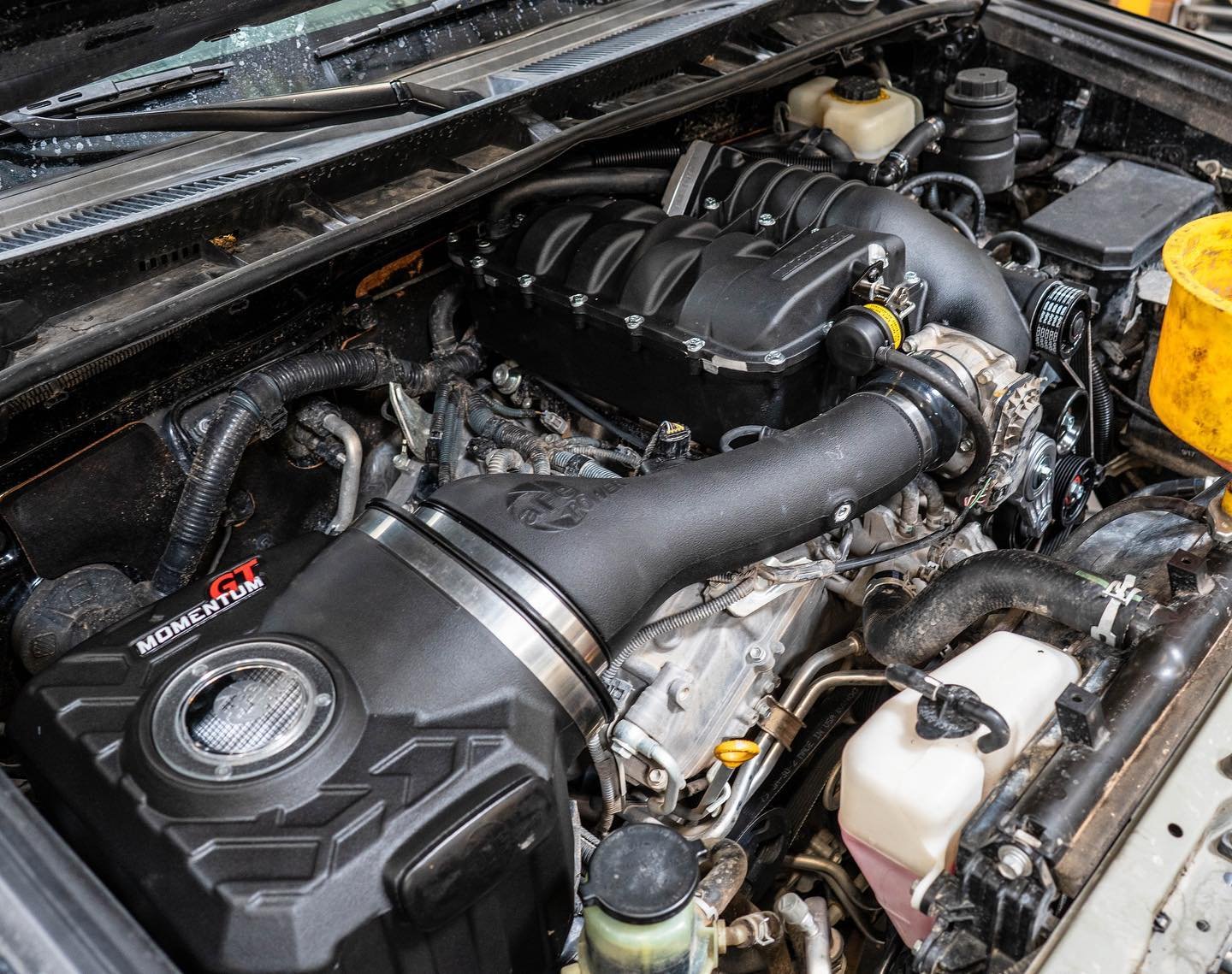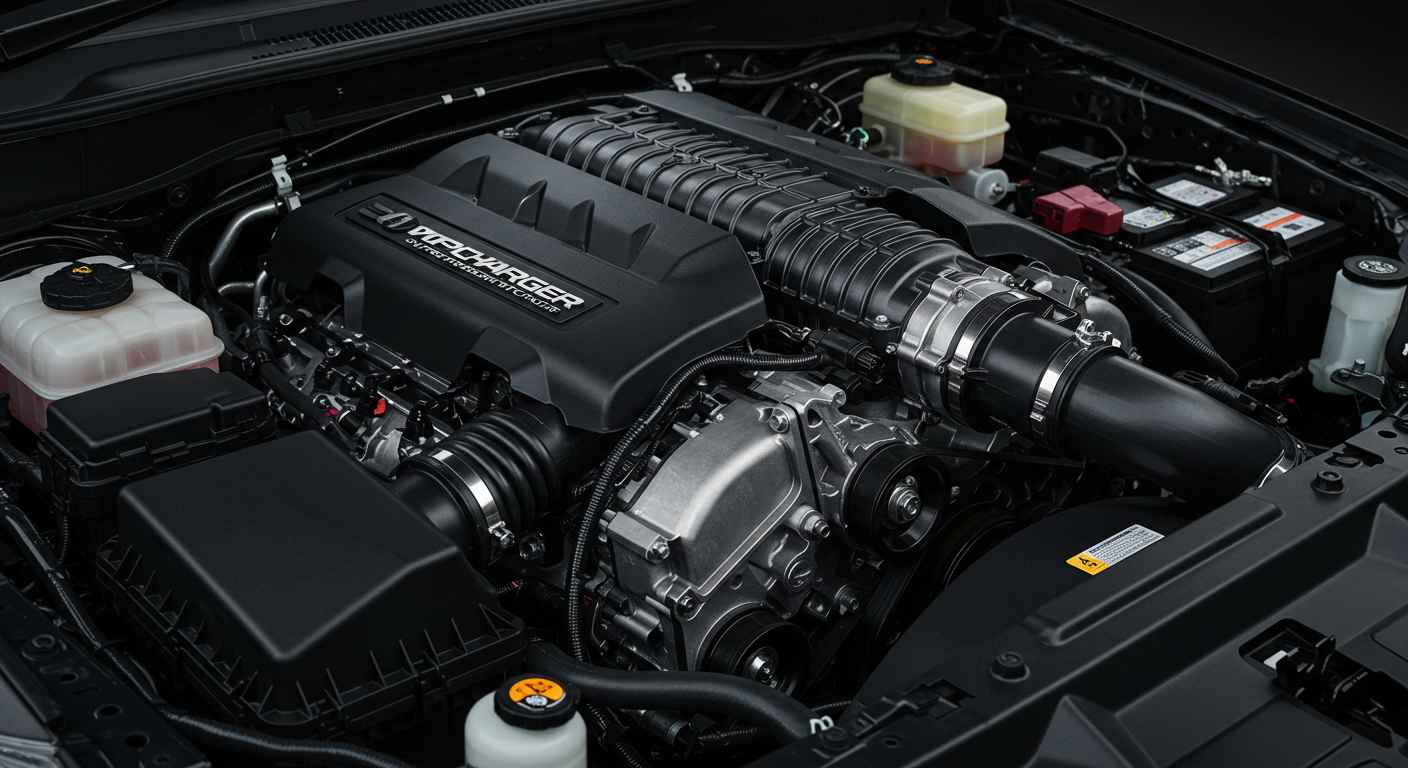Introduction to Eco-Friendly Engine Upgrades
In today’s automotive landscape, the quest for improved fuel efficiency has never been more critical, particularly for those owning older vehicles. Eco-friendly engine upgrades are increasingly becoming a pivotal solution in addressing the challenges posed by fuel emissions and climate change. As older cars tend to be less efficient, their impact on the environment can be significant, contributing to greenhouse gases and air pollution. Therefore, modernizing these vehicles through sustainable engine enhancements is both a practical and necessary approach.
The urgency to reduce our carbon footprint has propelled many car owners to seek alternatives that not only enhance the performance of their vehicles but also align with environmental stewardship. Eco-friendly engine upgrades, such as retrofitting systems, adjusting ignition timing, or even incorporating plug-in hybrid technology, offer numerous benefits. These modifications not only improve fuel efficiency by making better use of the available energy but also reduce emissions, which is a step towards cleaner air and a healthier planet.
Moreover, the economic implications of these upgrades cannot be overlooked. With rising fuel costs, making the switch to more efficient engine systems can lead to substantial savings over time. The initial investment in eco-friendly enhancements may appear daunting; however, the long-term reduction in fuel consumption and potential maintenance savings often offsets these costs, making it a worthwhile endeavor for conscientious car owners.
In essence, embracing eco-friendly engine upgrades presents a dual advantage: contributing positively to the environment through reduced emissions and providing economic benefits. As we delve deeper into the specifics of these upgrades, it becomes evident that integrating sustainable practices into automotive technologies is not just beneficial but crucial for the future of transportation.
Understanding Fuel Efficiency and Its Importance
Fuel efficiency is a measure of how effectively a vehicle converts fuel into distance traveled, commonly expressed in miles per gallon (MPG). This metric plays a pivotal role in assessing the performance of both modern and older automobiles. Higher fuel economy indicates that a vehicle can travel further on a specific amount of fuel, which is beneficial not only for the owner’s budget but also for the environment. In a world increasingly focused on sustainability, understanding fuel efficiency takes on new significance.
The correlation between fuel efficiency and carbon emissions is crucial. Vehicles that operate with lower fuel economy tend to burn more fuel, leading to higher emissions of carbon dioxide and other pollutants. As transportation is a significant contributor to global greenhouse gas emissions, enhancing the fuel efficiency of vehicles—especially older models—can significantly reduce their environmental impact. This becomes particularly relevant in the context of climate change, as every effort to minimize harmful emissions contributes positively to public health and the planet’s well-being.
Improving fuel efficiency in older cars not only serves an ecological purpose but also presents substantial financial advantages for vehicle owners. With rising fuel costs, efficient automobiles provide an opportunity for significant long-term savings. By investing in eco-friendly engine upgrades, owners can achieve better MPG ratings, which ultimately translates to less frequent fuel purchases. This is especially advantageous for those who rely on older models that were not designed with modern fuel economy standards in mind.
In conclusion, understanding fuel efficiency and its implications is crucial for promoting a sustainable future. As consumers become more conscious of their ecological footprint, enhancing fuel economy in older cars emerges as a practical approach for reducing expenses and minimizing environmental harm.
Common Challenges with Older Car Engines
Owners of older vehicles often encounter a multitude of challenges primarily related to engine performance and fuel efficiency. As vehicles age, components undergo wear and tear, leading to a decline in overall engine health. One of the most significant issues is the degradation of vital engine parts such as piston rings, gaskets, and seals, which can result in oil leaks and decreased efficiency in fuel combustion. This wear can lead to excessive consumption of fuel as the engine struggles to maintain optimal operation.
Another factor contributing to diminished performance is outdated technology. Many older cars are equipped with carbureted engines rather than modern fuel injection systems. Carburetors tend to provide inconsistent fuel-air mixtures, leading to inefficient fuel burning. Additionally, older engines typically lack advanced engine management systems, which continuously optimize performance based on real-time data. This absence of technological advancements means that older vehicles often cannot meet current fuel efficiency standards, leading to increased emissions and a larger environmental footprint.
Furthermore, the built-up carbon deposits in an older engine can hinder its performance. These deposits restrict airflow and negatively affect combustion, causing the engine to work harder and consume more fuel. Such inefficiencies not only burden the car owner with higher fuel costs but also contribute to increased greenhouse gas emissions, which have a detrimental impact on the environment.
Addressing these common challenges is essential for improving fuel efficiency and mitigating the ecological effects associated with older vehicle operation. Upgrades, therefore, become not just beneficial but necessary for those aiming to enhance their vehicles’ performance while minimizing their environmental footprint. By upgrading key components and integrating modern technology into older engines, vehicle owners can effectively tackle these performance issues.
Types of Eco-Friendly Engine Upgrades
Improving fuel efficiency in older cars can be achieved through several eco-friendly engine upgrades, each offering distinct advantages for vehicle performance and sustainability. One such upgrade is the installation of advanced fuel injection systems. Traditional carburetors often waste fuel, but modern fuel injectors deliver precise amounts of fuel directly into the combustion chamber, optimizing the air-fuel mixture. This upgrade not only enhances power output but can also significantly improve fuel efficiency, reducing the carbon footprint of the vehicle.
An additional upgrade option is engine remapping, also known as engine tuning. This process involves reprogramming the vehicle’s Engine Control Unit (ECU) to improve performance metrics. By adjusting parameters such as fuel delivery and ignition timing, remapping can result in better throttle response and increased MPG (miles per gallon). The benefits extend beyond fuel efficiency; optimized performance can lead to a smoother driving experience while also decreasing harmful emissions.
Cold air intakes serve as another effective upgrade for older vehicles. By replacing the factory air intake system with a cold air intake kit, the engine receives a larger volume of cooler air. This increased airflow can contribute to more efficient combustion, enhancing horsepower and torque while also improving fuel efficiency. The cooler air is denser, allowing for more oxygen to enter the combustion chamber, leading to a more complete fuel burn and lower emissions.
Lastly, catalytic converter replacements are crucial for older vehicles struggling with emissions and fuel efficiency. Upgrading to high-performance catalytic converters can help facilitate a more efficient exhaust flow. This process not only assists in reducing toxic emissions but can also lead to minor improvements in fuel efficiency. Such upgrades are integral in ensuring that older cars can perform better while remaining environmentally friendly.
Benefits of Upgrading to Eco-Friendly Engines
The transition to eco-friendly engines offers a multitude of benefits for vehicle owners, particularly those with older cars. One of the most significant advantages is the enhanced fuel efficiency that these modern engines provide. Upgrading to an eco-friendly engine can result in a noticeable reduction in fuel consumption, which translates directly to cost savings at the pump. This improvement not only benefits individual drivers financially but also aids in reducing a car’s overall carbon footprint.
Furthermore, eco-friendly engines contribute to improved vehicle performance. Many advancements in engine technology focus on optimizing power output while minimizing environmental impact. This shift enables drivers to experience a more smoother and responsive ride, enhancing their overall satisfaction with the vehicle. By investing in these upgrades, vehicle owners often find that their driving experience is vastly improved, making everyday commutes and long journeys more enjoyable.
Compliance with increasingly stringent emissions regulations is another critical factor in considering an upgrade. Governments worldwide are implementing stricter policies aimed at reducing harmful emissions from vehicles. By upgrading to an eco-friendly engine, car owners not only adhere to these regulations, thus avoiding potential fines, but can also contribute positively to public health by lowering air pollution levels.
Moreover, eco-friendly engine upgrades can significantly increase the resale value of older vehicles. Many prospective buyers are actively seeking vehicles that offer lower emissions and better fuel economy, making upgraded cars more attractive in the marketplace. By enhancing the vehicle’s value, these upgrades serve as a sound investment for owners. Ultimately, the shift to eco-friendly engine technologies not only supports individual savings and performance but also plays an essential role in contributing to a cleaner and more sustainable environment.
Identifying the Right Upgrades for Your Vehicle
When considering upgrades for fuel efficiency in older vehicles, the first essential step is to conduct thorough research tailored to your specific make and model. Different vehicles respond uniquely to various enhancements, and as such, identifying the most suitable upgrades requires a comprehensive understanding of your car’s engine specifications, performance characteristics, and overall design. Start by consulting the vehicle owner’s manual, which can provide valuable insights into the engine type and potential compatibility with various aftermarket parts.
Engaging with professional mechanics is another prudent approach. An experienced mechanic can help assess your vehicle’s current condition and recommend upgrades that align with its capabilities. They are familiar with common modifications that tend to enhance fuel efficiency, such as installing a high-performance air intake system or optimizing the engine control unit (ECU). Mechanics can also advise on the longevity and reliability of upgraded components, ensuring that any chosen enhancement does not introduce new issues.
In addition to professional guidance, utilizing online resources and automotive forums can facilitate knowledge sharing and offer real-world experiences from fellow vehicle owners. Communities often share insights on the most effective upgrades and the benefits or challenges associated with them. It is also valuable to research the availability of compatible parts, as this can influence your decision-making process. Websites specializing in automotive enhancements often contain reviews and comparisons that can aid in identifying top-rated components.
Ultimately, understanding the specific needs of your vehicle, paired with professional advice and thorough research, empowers you to make informed decisions regarding upgrades. This strategic approach not only enhances fuel efficiency but also maximizes the performance and longevity of your vehicle. Regular assessments and staying updated on advancements in eco-friendly technologies will further ensure that your upgrades remain relevant and effective.
DIY vs. Professional Engine Upgrades
When considering eco-friendly engine upgrades for older cars, one critical decision revolves around whether to undertake the project as a do-it-yourself (DIY) endeavor or to enlist the help of a professional mechanic. Each approach carries its specific advantages and disadvantages that can significantly impact the final outcome and overall experience.
One of the most apparent benefits of DIY engine upgrades is the potential cost savings. By performing the work oneself, car owners can avoid labor fees that can accumulate when hiring a professional. Additionally, vehicle enthusiasts often take pride in their ability to learn new skills and complete projects independently. However, it is essential to consider that such savings may come at the expense of time and expertise. A DIY project requires significant research, preparation, and the right tools, which can be daunting for individuals with limited mechanical knowledge. Moreover, improper installation or technical errors could result in functional drawbacks, ultimately negating the eco-friendly benefits sought from the upgrades.
On the other hand, hiring a professional mechanic brings a wealth of experience and knowledge to the table. Professionals are equipped with the proper tools, skills, and access to headway on potential issues that might arise during upgrades. Their expertise can be invaluable, especially for intricate modifications that may be technically challenging for a non-professional. However, this route often incurs higher costs, and finding a reputable mechanic can take time and research.
In summary, the decision between DIY and professional engine upgrades ultimately hinges on individual capabilities, budget considerations, and desired outcomes. It is critical for car owners to assess their mechanical skills, the complexity of the upgrades, and the associated risks, ensuring that their eco-friendly upgrades align with their goals and resources.
Regulatory Considerations and Incentives
When considering eco-friendly engine upgrades for older vehicles, it is essential to understand the legal and regulatory landscape that governs these modifications. Various emissions standards set by federal and state authorities dictate how modifications can be implemented while complying with environmental regulations. The Environmental Protection Agency (EPA) plays a crucial role in establishing these standards, determining permissible emissions levels for different vehicle categories. It is important for vehicle owners to familiarize themselves with these regulations to avoid potential fines or penalties. Depending on the modifications implemented, an emissions test may be required for the vehicle to ensure compliance.
Additionally, safety regulations must be taken into account. Upgrades should not compromise the integrity of crucial safety features. Therefore, adhering to established safety guidelines, including those stipulated by the National Highway Traffic Safety Administration (NHTSA), is paramount. Older vehicles may require certain safety enhancements alongside engine upgrades, contributing to overall vehicle performance and road safety.
In recognition of the environmental benefits derived from upgrading older engines, various government and local incentives are available to encourage eco-friendly modifications. Programs offering tax credits or rebates can significantly ease the financial burden on car owners aiming to transition to greener alternatives. These incentives are often influenced by the specific improvements made, such as reduced emissions and increased fuel efficiency. Prospective vehicle owners should research applicable programs in their region, as state governments and local municipalities frequently collaborate to promote sustainability initiatives. By taking advantage of these incentives, individuals not only contribute to a cleaner environment but can also achieve notable savings in their vehicle upgrade endeavors.
Conclusion and Call to Action
In today’s world, the importance of eco-friendly engine upgrades cannot be overstated. As climate concerns grow, older vehicles often serve as significant sources of fuel inefficiency and emissions. By investing in such upgrades, drivers not only enhance their vehicle’s performance but also contribute positively to the environment.
Throughout this blog post, we have explored various methods to improve fuel efficiency in older cars. From advanced engine tuning to the integration of high-quality fuel injectors, each option presents unique benefits aimed at reducing environmental impact. Additionally, simple maintenance practices can further optimize performance and facilitate a smoother, more efficient drive. Every step taken towards upgrading a vehicle contributes to lower emissions and reduced fuel consumption, thereby aligning personal choices with broader sustainability goals.
It is essential for vehicle owners to recognize the value of these eco-friendly upgrades. Rather than viewing older vehicles as obsolete, there is a pathway toward revitalization and sustainability. As you contemplate these possibilities, consider consulting with professionals who can provide insights tailored to your particular vehicle and driving habits. Furthermore, a wealth of DIY resources and guides are available for those interested in a hands-on approach to enhancing fuel efficiency.
Take action today by exploring your options for eco-friendly engine upgrades. Your commitment can play a significant role in promoting sustainability, and every effort matters. Whether opting for professional assistance or embarking on a DIY journey, you have the opportunity to make a meaningful difference for both your vehicle and the environment. Embrace the change, and contribute to a greener future by focusing on fuel efficiency in your older car.











